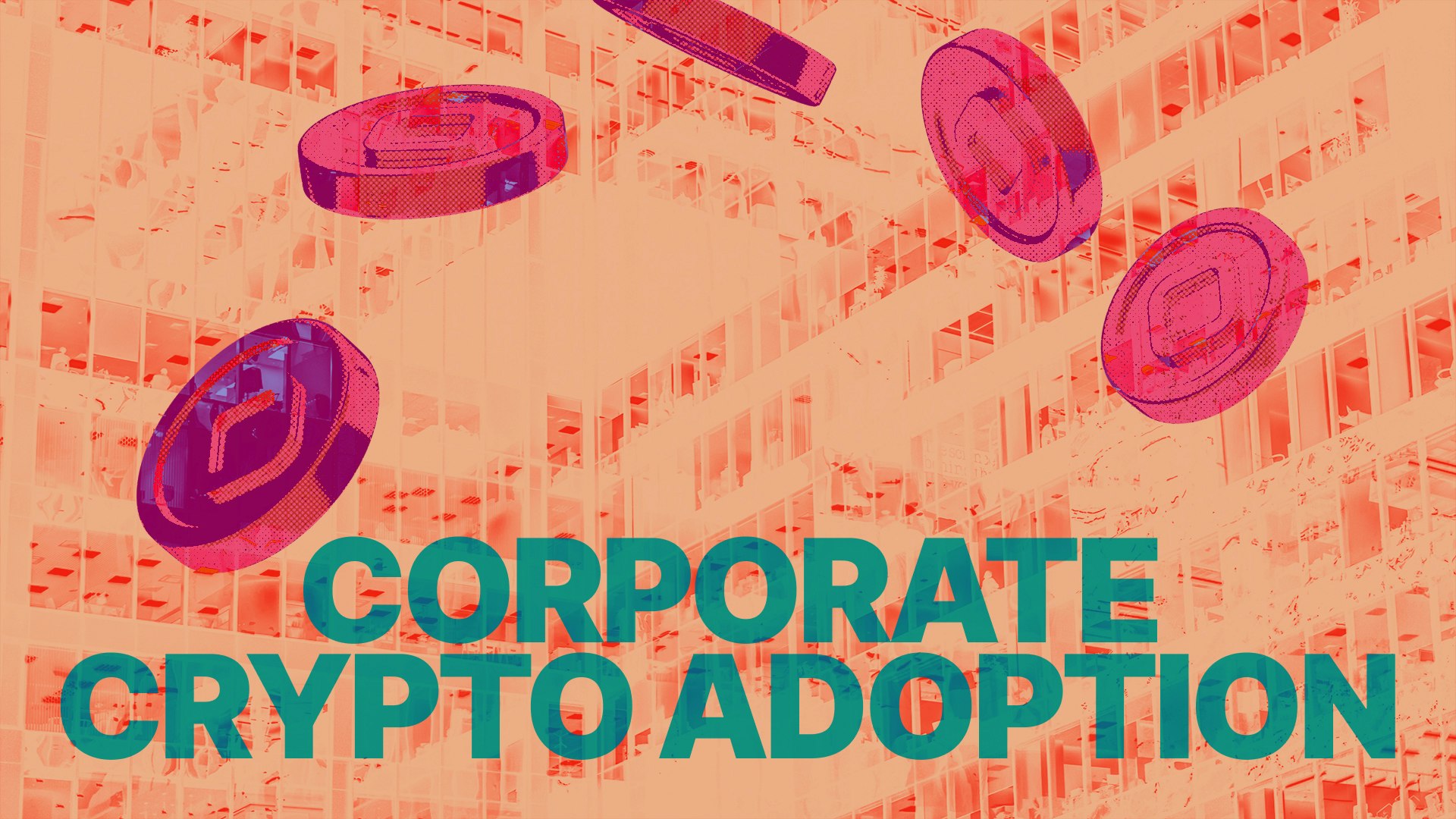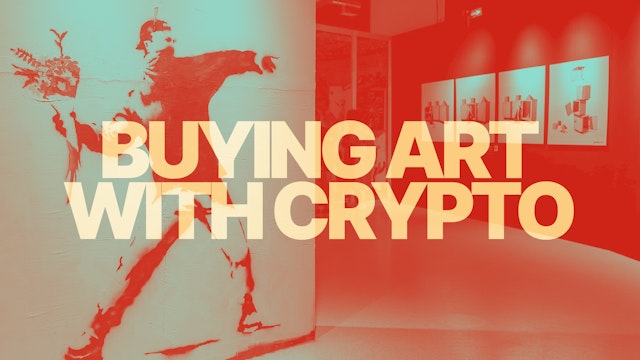Corporate Crypto Adoption: How CFOs Are Using Digital Assets Now
Are corporates and institutions open to using cryptocurrencies? Here are some changes in the traditional finance landscape.
In this article...
- Some interesting new surverys show that corporate interest in crypto is growing
- Institutions and corporations may be more interested in the uses of crypto
- Here's what CFOs might be interested in knowing

The usually conservative corporate treasury landscape seems to be changing with the times. Until now, digital assets have been viewed as speculative investments by many in traditional finance. Lately, however, that view seems to be shifting. Now, those in traditional finance seem to be moving towards using cryptocurrency as strategic financial instruments.
Just how many CFOs are now seeing cryptocurrencies as part of a modern treasury?
The Numbers Tell the Story
Recent data from Deloitte's Q2 2025 CFO Signals Survey reveals a shift in corporate sentiment. In the USA anyway.
Twenty-three percent of CFOs expect their treasury departments to use cryptocurrency for either investments or payments within the next two years.
This figure rises dramatically among larger enterprises. For companies with revenues exceeding $10 billion, nearly 40% of CFOs anticipate crypto adoption within 24 months. While these numbers don’t necessarily apply to Ireland, it is an interesting change in sentiment, even if it comes from over the pond.
Treasury Management Revolution
CFOs may have noticed blockchain technology's potential to fundamentally restructure how corporations manage liquidity, execute cross-border transactions, and optimise working capital.
The regulatory environment in the USA has also evolved to support this transition. Recent crypto regulation in the USA has created unique opportunities for corporate finance. It provides the legal framework that risk-averse CFOs require before committing shareholder capital to digital asset strategies.
CFOs in Ireland
Irish CFOs are expected to take a more measured and cautious approach to crypto adoption compared to the rapid uptake seen among US corporate treasuries.
Irish executives face a distinctly different regulatory and cultural environment thanks to the regulations in Europe called MiCA. However once MiCA becomes more familiar to Irish CFOs, providing the regulatory clarity that risk-averse CFOs require, the stats in Ireland may follow those of the USA.
Irish CFOs will probably observe early US adopters, evaluate regulatory stability, and focus on stablecoins and payment applications before considering Bitcoin or other volatile assets for treasury reserves.
The timeline for meaningful Irish corporate crypto adoption is likely 12-24 months behind the US curve, with initial focus on operational efficiency through regulated payment rails rather than speculative treasury strategies.
Strategic Use Cases Emerging
Three primary use cases could be driving CFO interest.
Cross-Border Payment Efficiency
Traditional international wire transfers can take days and involve multiple intermediaries, each clipping the ticket on the way through. Stablecoins and other crypto payment rails enable same-day settlement with significantly reduced costs, and few, if any, intermediaries.
Treasury Yield Optimisation
With traditional money market yields fluctuating, some corporations are exploring DeFi protocols for enhanced returns on idle cash. That is, some CFOs are looking into staking on crypto platforms for higher interest.
Supplier Payment Innovation
Some companies are offering crypto payment options to vendors. This is more likely in technology and services sectors where digital asset acceptance is higher. This approach can reduce transaction costs while positioning the company as innovative to its customers.
Risk Management Considerations
Despite growing acceptance, let’s not start the tipping point party just yet. CFO adoption remains measured and strategic. Price volatility remains the top concern for 43% of CFOs. This is a sound response given cryptocurrencies' historical price swings.
However a good experiment is stablecoin adoption. Thanks to their design of having a stable price, stablecoins have become the entry point for some corporations.
For companies pursuing non-stablecoin digital assets, 15% of CFOs in the USA indicated their companies could purchase these assets over the next two years.
The Mainstream Adoption Perspective
So is crypto going mainstream? Is this the tipping point? It could be. When Fortune 500 CFOs allocate shareholder capital to crypto strategies, it might signal fundamental acceptance within traditional finance in the USA.
As more companies accept digital payments and integrate blockchain systems, the value of digital assets increases beyond pure speculation. Crypto has a use case. It is useful.
And institutional demand can influence government policy, sometimes. Officials receive pressure to establish comprehensive digital asset frameworks, creating more stable operating environments.
Looking Forward
The trajectory of corporate crypto adoption appears increasingly clear. CFOs in Deloitte's survey expect to be using digital currency within two years. This could mean that 2025 may represent the inflection point where corporate crypto goes from experimental to operational.
Digital assets might no longer be a peripheral concern, but a component of modern corporate finance, even in Ireland, which may follow USA patterns. For CFOs, the question is not whether to engage with crypto, but how quickly to develop the expertise necessary to compete in a world where everyone else is adopting crypto before you do.

Suggested Articles

The Psychology of Crypto Trading: Why We Make Irrational Decisions
The psychology of crypto trading: Here are some ideas on how to avoid mistakes.Read more
Does Your Fave Crypto Exchange Have a Celebrity Logging on as Well?
Many celebs have been connected with the blockchain. Has your fave celeb been indulging in crypto exchange life?Read more
Want to Buy a Famous Artwork or Giant Jewel? You Can Pay in Crypto
Art and crypto seemed to have had an easy connection from the inception of the blockchain. Read moreBrowse by topic
Warning: Past performance is not a reliable guide to future performance. If you invest in this product, you may lose some, or all, of the money you invest. The above information is not to be read as investment, legal or tax advice and takes no account of particular personal or market circumstances; all readers should seek independent investment, legal and tax advice before investing in cryptocurrencies. There are no government or central bank guarantees in the event something goes wrong with your investment. This information is provided for general information and/or educational purposes only. No responsibility or liability is accepted for any errors of fact or omission expressed therein. CoinJar Europe Limited makes no representation or warranty of any kind, express or implied, regarding the accuracy, validity, reliability, availability, or completeness of any such information. CoinJar Europe Limited is authorised by the Central Bank of Ireland as a crypto-asset service provider (registration number C496731).
Your information is handled in accordance with CoinJar’s Privacy Policy.
Warning: Past performance is not a reliable guide to future performance. If you invest in this product, you may lose some, or all, of the money you invest. The above information is not to be read as investment, legal or tax advice and takes no account of particular personal or market circumstances; all readers should seek independent investment, legal and tax advice before investing in cryptocurrencies. There are no government or central bank guarantees in the event something goes wrong with your investment. This information is provided for general information and/or educational purposes only. No responsibility or liability is accepted for any errors of fact or omission expressed therein. CoinJar Europe Limited makes no representation or warranty of any kind, express or implied, regarding the accuracy, validity, reliability, availability, or completeness of any such information.
CoinJar Europe Limited is authorised by the Central Bank of Ireland as a crypto-asset service provider (registration number C496731).
For more information on our regulatory status and the crypto-asset services we are authorised to provide, please see our official announcement and our MiCAR Legal & Regulatory Information page.
Apple Pay and Apple Watch are trademarks of Apple Inc. Google Pay is a trademark of Google LLC.
This site is protected by reCAPTCHA and the Google Privacy Policy and Terms of Service apply.

